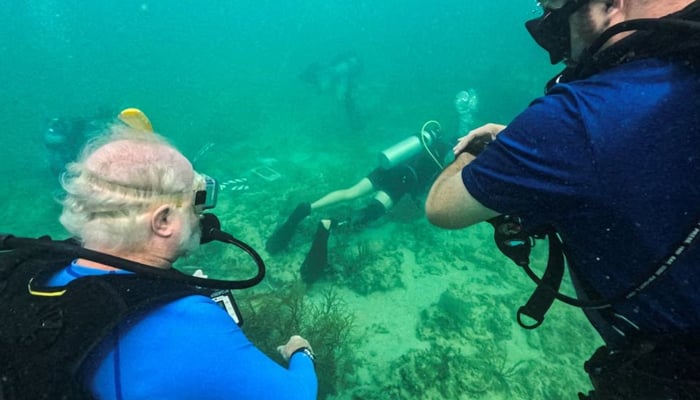Boiling point: Florida seas become bathtub-hot, endangering marine ecosystem
July 26, 2023

Days, after scientists held human activities responsible for climate-change-led heatwaves, the seawater in Manatee Bay on the coast of Florida, was recorded at its highest-ever temperature — as hot as a hot bathtub, US media reported.
The temperatures were measured Sunday and Monday, while the readings in two others were also recorded near that mark.
The highest-ever ocean temperature was recorded unofficially in Kuwait Bay in 2020 which was 37.6C.
As the temperatures rise, they put marine life in danger affecting the whole ecosystem.
According to scientists, there have been bleaching and death in some of the Florida Keys' most resilient reefs — which host millions of algae and other microorganisms.
As the ocean temperature increases to 35C, corals drive algae out, lose their vibrant colour and weaken, causing bleaching.
"The corals are pale, it looks like the colour's draining out," said Katey Lesneski, a research and monitoring coordinator with the National Oceanic and Atmospheric Administration (NOAA).
"And some individuals are stark white. And we still have more to come."
Peak bleaching typically happens in late August or September, but experts stated it is taking place “much sooner than expected this year as the water temperatures rise.”
NOAA this week raised its coral bleaching warning system in the Keys to Alert Level 2, its highest heat stress level, according to BBC.
"This is a hot tub. I like my hot tub around 100, 101, (37.8, 38.3C) That's what was recorded yesterday," Yale Climate Connections meteorologist Jeff Masters told the US media.
It is recommended that hot water temperatures should be 37-40C (98-104F).
Warm waters also pose a threat to fishermen and others whose livelihoods are associated with the water, with knock-on effects on the human food supply.
One fishing boat captain in Key Largo told the Guardian his catch has been getting "slower and slower" over the past five summers.
Ocean surface temperatures worldwide have broken heat records for the months of April, May and June, according to the US government agency.





